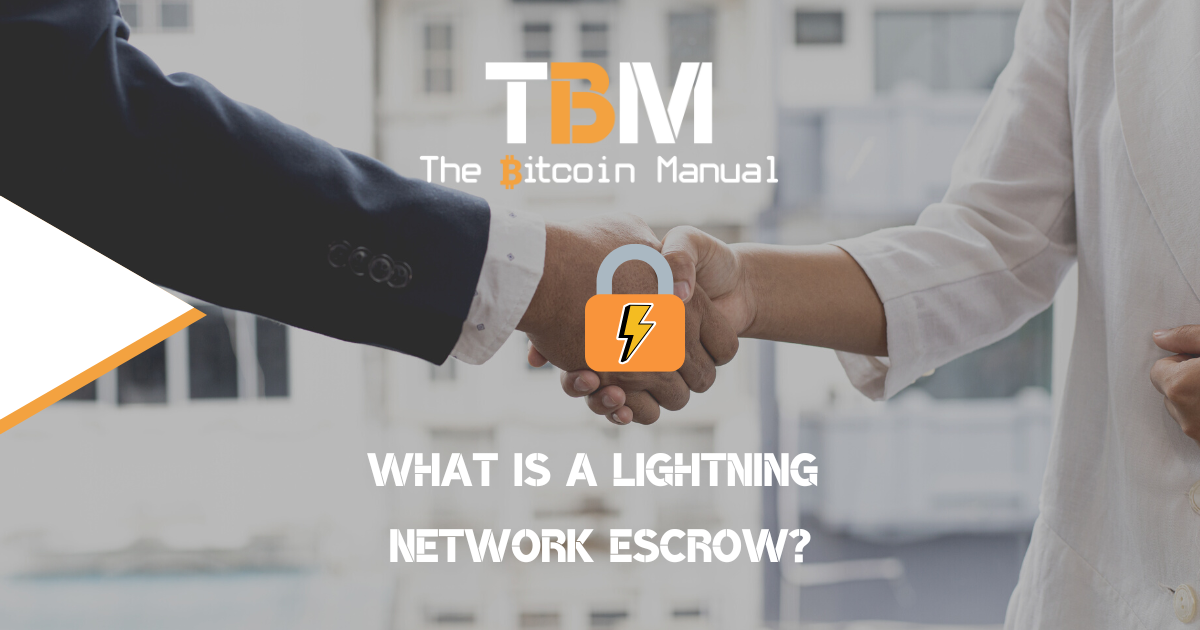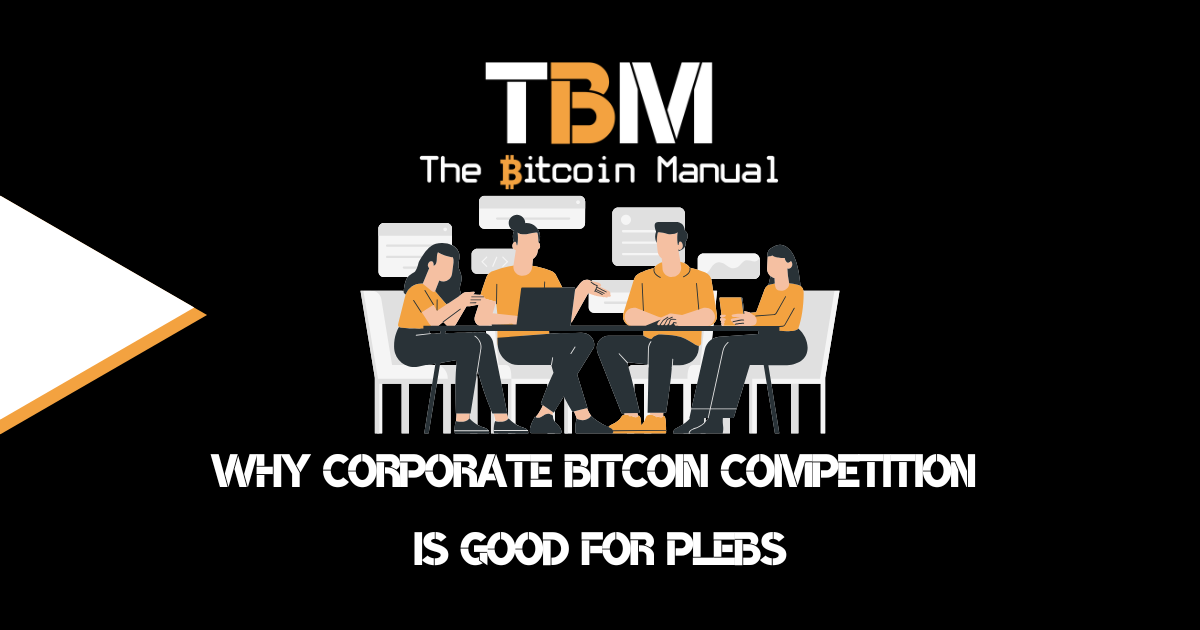The bitcoin network today has a market cap in the billions and has even reached as high as 1 trillion dollars US. The network settles billions in transaction volume each day. As it continues to prove a reliable method of transferring funds between parties, more people are beginning to trust it to settle more significant transactions.
Bitcoin, the leading or, rather, only genuinely digitally native currency, has been at the forefront of this financial revolution. While other chains and tokens focus on how to monetise monkey jpegs, bitcoin is used to settle large real-world transactions like real estate purchases.
One reason why bitcoin is considered a method of settling larger transactions is due to its ability to settle globally across time zones.
The other reason is that on-chain bitcoin wallets have the ability to generate multi-signature accounts where multiple private keys are required to sign, making it ideal for conducting escrow transfers.
How bitcoin can be used to escrow funds.
Let’s take real estate as an example; you could broker a deal with an escrow service and lock the bitcoin into a 2 of 3 multi-sig account. You have one key, and the escrow has one key. The property seller can see the funds on-chain and has the third key.
Once the deed for the property is registered in your name, you and the escrow can sign and release the funds to the seller, and everyone is happy.
Yes, there is always a chance that 2 of the key signers could collude to steal funds, and this is where reputation or the rule of law would serve as the incentive to act honestly.
Escrow across layers.
There are clear benefits to having an escrow service when transferring large funds, but why not smaller amounts? Surely it could be helpful for eCommerce purchases, P2P trades and much more.
If you’re looking to employ the same multi-sig model but want a cheaper and faster settlement, your first option would be to switch to the Liquid Network. This side chain also offers multi-sig wallets in the same way as the bitcoin base chain, but with way cheaper fees, two-minute block time settlement and confidential transactions for additional privacy.
But all bitcoin purchases will also be made on-chain, so what about the Lightning Network?
Does it have the ability to escrow? Since the Lightning Network only uses the base chain as a fallback for the final settlement of balances through closing channels, it doesn’t have the same ability to generate multi-sig addresses in its network and has to take an alternative approach.
What is an escrow?
Escrow is a legal concept used as a layer of security for a financial agreement where one asset might clear faster than another.
When you purchase something from a store with cash, you and the store aren’t taking any settlement risk, you receive the product immediately, and the store receives cash.
But what if you’re purchasing something that may take a while to settle due to paperwork and registration, you might hand over the funds, but it may take a while for you to deliver, and in that time, the counterparty could run away with your money and not honour the agreement.
In cases like this, using escrow can help.
Instead of two parties agreeing to exchange money for an asset and trusting one another to honour the deal, the agreed asset or money is held by a third party on behalf of two other parties that are in the process of completing a transaction.
The escrow agent manages escrow accounts.
The agent releases the assets or funds only upon the fulfilment of predetermined contractual obligations (or upon receiving appropriate instructions), while the escrow agent can also be used as a mediator that is called in to handle disputes and will decide who to release the funds to or asset to after evidence has been presented.
Money, securities, funds, and other assets can all be held in escrow.
How does Lightning escrow work?
To create an escrow using the Lightning Network, you would find someone willing to sell you a product for bitcoin on the Lightning Network.
You would agree on the fee and receive a payment invoice as per normal; you, as the buyer, would pay the invoice, and the funds will be locked with an escrow agent. Only once you’ve taken delivery of the product would you confirm delivery, and the funds will be released to the seller.
In between all that, what happens is:
- The seller creates a Lightning invoice for the amount and sends it to the escrow.
- The escrow then creates a special type of Lightning invoice known as a hodl invoice with hash from the seller invoice, which the escrow then sends to the buyer.
- The buyer commits to paying hodl invoice, and the funds now sit on the escrow Lightning node.
- After the buyer receives the goods and confirms, the escrow pays the seller invoice (by buying the preimage to settle payment from the buyer).
- If the buyer never receives their purchase, the escrow will cancel the hodl invoice, and the funds will be reverted to the buyer.
Lightning escrow as a service.
Having the ability to escrow funds is one thing, but getting people to understand the feature and then go out and use it is an entirely different proposition. The vast majority of Lightning users are never going to spin up their own escrow contract, and like Lightning Service Providers, Escrow as a service will come to Lightning in one form or another.
A company aiming to target this niche is BitEscrow, which will make its API available so marketplaces, wallets and other Lightning network services can leverage their business for the infrastructure or as the escrow custodian.
Sneak peek of the dashboard 👀 pic.twitter.com/mQLJdDA24O
— BitEscrow (@BitEscrow_app) August 3, 2022
Escrow in an instant.
Lightning Network escrow is a powerful solution that has the potential to revolutionise not only transactions but how we transact with others online. With instant payments, lower fees, scalability, and secure P2P trading, it is poised to transform the world of eCommerce, cross-border settlements, and P2P trading.
As more individuals and businesses adopt this technology, we can expect to witness a new era of financial freedom and security, such as more bitcoin native marketplaces and individual sellers willing to accept bitcoin because they have more assurances around the payment.
As more users embrace the Lightning Network for the obvious benefits, such as escrow, we take that first step towards commerce with fewer rent-seeking middlemen, fewer disputes, and fewer chargebacks, and that will only be a driver of efficiency and more deflation. Deflation that will be worked into the price of goods and services sold in bitcoin, giving us more for less.
Do your own research.
If you want to learn more about Lightning Escrow, use this article as a jumping-off point and don’t trust what we say as the final say. Take the time to research, check out their official resources below or review other articles and videos tackling the topic.
- GitHub – Hodl Contract API
- bitescrow.app
- Lightning Escrow Api Demo
- Three-party lightning escrow trade protocol for Bisq 2
- Making Escrow More Decentralised
Are you a bitcoin and lightning fan?
Have you been using Lightning to make micro-payments? Stream sats or engage with apps? Which app is your favourite? Do you run a Lightning node? Have you tried all the forms of Lightning payments? Which one do you prefer?
Let us know in the comments down below.




